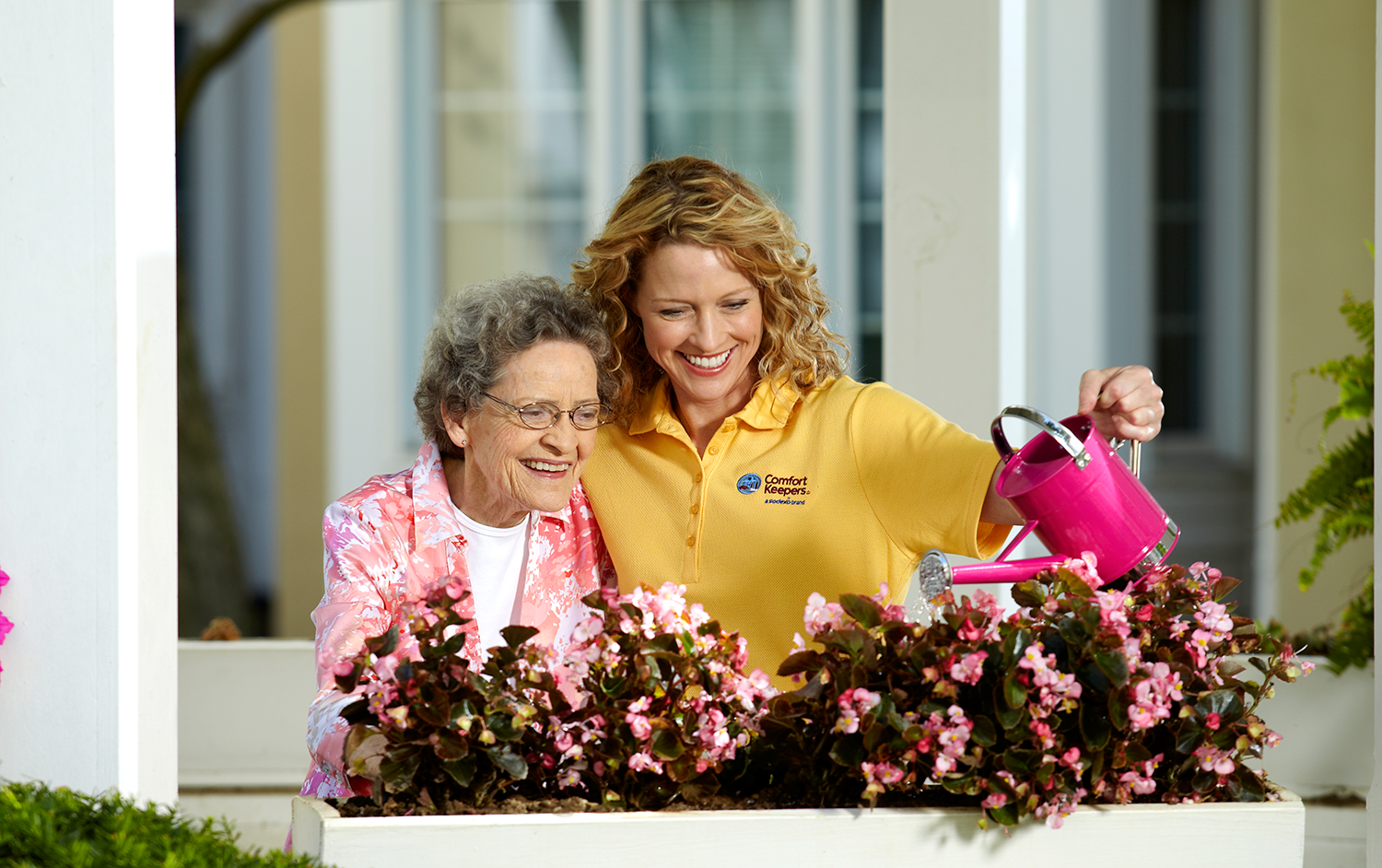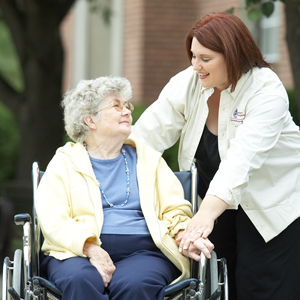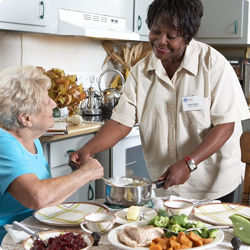Seniors and Diabetes
Collingwood Senior Home Care | February 10, 2023

Seniors should try to get a minimum of 30 minutes of exercise at least five days a week to help prevent or control diabetes.
Seniors and Diabetes in Georgian Triangle | Currently, approximately 10 million Canadians suffer from diabetes or pre-diabetic conditions. Every hour, over twenty individuals are confirmed to have the illness. It is highly likely that either yourself or somebody in your life has been diagnosed with diabetes.
#DYK | In the spring of 1922 the University of Toronto and researchers Dr. Frederick Banting, Charles Best, J.B. Collip and their supervisor, J.J.R. Macleod announced the discovery of insulin. In 1923, Banting and Macleod received the Nobel Prize for one of the most important, and most controversial breakthroughs in modern medical history.
Source: The Canadian Encyclopedia
Seniors and Diabetes – Prevention Tips:
It is possible to delay or even stop the rise of type 2 diabetes. Eating healthy foods, increasing physical activity, and maintaining a healthy weight can help prevent diabetes, regardless of age. Making changes to your lifestyle now may help avoid some serious health conditions associated with diabetes in the future, including issues related to nerves, kidney, and heart. Look into the most updated guidelines for diabetes prevention.
Seniors: Get More Physical Activity
It is important for seniors to stay physically active. As we age, it is necessary to get some form of exercise regularly. Taking part in activities that involve movement can enhance both physical and mental health.
Staying active has a range of advantages; from aiding weight reduction to lowering blood sugar and increasing sensitivity to insulin, staying active helps to maintain a healthy level.
As individuals age, their joints may cause them discomfort when exercising; however, inactivity can only make matters worse. If feasible, aerobic exercise and weight training can be beneficial in managing diabetes; yet, a physical activity program which combines both elements will provide the best results.
Seniors: Lose that Extra Weight
Many seniors incorporate walking into their daily schedule due to its low-impact nature, enjoyable quality and easy access. An additional great way for them to get engaged in low-impact exercise is through senior swim classes or sessions.
Senior Centers and organizations are an excellent resource for discovering fitness and exercise regimes in local communities, for instance groups that participate in “mall walking” whenever the conditions are unpleasant.
Seniors may look to getting active at home by taking ten minutes to march on the spot, stretching while tuning into their favourite show, or opting for a stroll up and down the corridor when living in an apartment building or complex.
Seniors should aim to get at least 30 minutes of exercise five days a week. Even if they break it up into multiple short sessions, older individuals must first consult with their physicians before beginning any exercises.
Elderly adults should strive to reduce excess weight. It is important to watch your diet and exercise regularly in order to shed pounds.
Aging seniors can often reduce their risk of developing diabetes by dropping a few pounds. A significant decrease in the probability can be seen when even a small amount is lost – as little as 7 percent of the initial body weight – and regular exercise is done. One research project revealed an impressive 59 percent reduction in chances among those who met these requirements.
Seniors: Make Healthy Food Choices
Elderly individuals should prioritize their eating habits, selecting food items which are beneficial to their health. It is imperative that they consume meals that are full of essential nutrients and vitamins. These dietary decisions can have a lasting impact on one’s well-being, so it is important to be mindful of what is being eaten.
To help prevent diabetes, the elderly should observe certain dietary rules. Following a balanced diet, which includes plenty of fruits and vegetables, is essential. It is also important to limit the consumption of foods high in sugar and fat. Furthermore, seniors should strive to get regular physical activity as part of their daily routine.
Getting assistance from a health care team, like Comfort Keepers, can be essential to developing a diabetes meal plan. Working together, you can create an eating guide that meets your individual needs.
Tips for Preventing and Managing Diabetes
- Opt for options with less calories, saturated fat, trans fat, sugar and sodium.
- Opt for fiber-rich foods like whole grain cereals, breads, crackers, rice, and pasta in your diet.
- Opt for nutrient-rich foods such as fruits, vegetables, whole grains, bread and cereals, and low-fat or skim dairy products.
- Instead of juice and soda, opt for water. Drinking more water can help to both stay hydrated and cut down on unhealthy calories.
Taking proactive steps to help seniors regulate their diabetes can be achievable when effective guidelines are adhered to. Caregivers and families have a major role in monitoring elderly individuals to guarantee that the right lifestyle choices with regard to exercise, weight, and nutrition are being made. Additionally, aiding them in finding exercise programs appropriate for their age and physical limitations, creating shopping lists together, going grocery shopping with them, and supervising meals preparation and portioning of food can all contribute to supporting them in this situation.
Comfort Keepers® Georgian Triangle Can Help with Seniors and Diabetes!
If you are concerned about the health and well-being of your aging loved ones we can help. Comfort Keepers®’s trained caregivers help provide senior clients with the highest quality of life possible to keep them happy and healthy at home. Our Interactive Caregiving™ provides a system of care that addresses safety, nutrition, mind, body, and activities of daily living (ADLs).
What’s more, our trained caregivers are selected with one specific quality in mind: empathy. Care that is empathetic is care that starts in the heart, and it allows us to meet our client’s exact needs. Learn more about our unique service offering Dementia Care and Palliative Care by contacting the Comfort Keepers Georgian Triangle office.
Comfort Keepers Georgian Triangle, is pleased to announce that we are a recipient of Accreditation Canada’s, Accreditation Primer Award. Accreditation is an intensive process in which an organization’s processes, policies, and procedures are examined by industry experts against a set of quality standards. To achieve accredited status, Comfort Keepers offices met or exceeded the rigorous standards for Home Care companies, as defined by Accreditation Canada.
If you live in the Collingwood, Midland, Owen Sound area, contact Comfort Keepers at (705) 293-5553, or email us at georgiantriangle@comfortkeepers.ca. Comfort Keepers Georgian Triangle is here to help you and your loved ones get the best care possible.
References:
- “About Diabetes.” Canadian Diabetes Association. Web. 2015.
“Preventing Diabetes in Seniors.” American Diabetes Foundation. Web. 2015. - “Diabetes Prevention.” NIH Senior Health Newsletter. National Institutes of Health (NIH). Web. 2015.
- “Diabetes Prevention.” American Medical Association (AMA). Web. 2014.
- “Diabetes Prevention: 5 Tips for Taking Control. Diseases and Conditions. Mayo Clinic. Web 2013.
- “The Discovery of Insulin.” The Canadian Encyclopedia. Web 2021.
Individualized Home Care Options
Long-Term Home Care, 24 Hour Home Care & Short Term Care Options Customized for You







